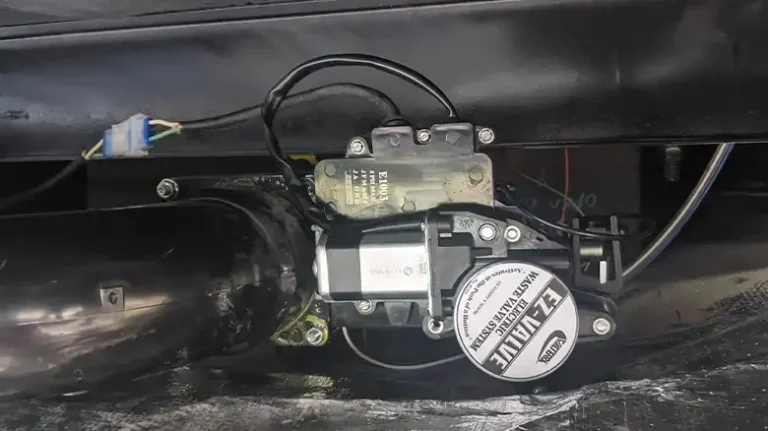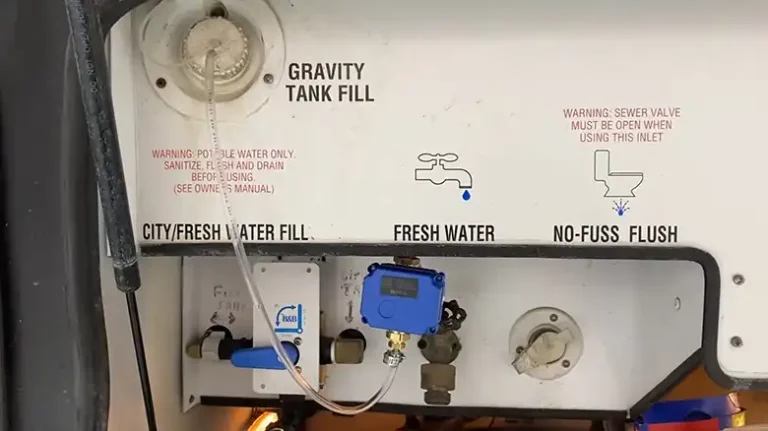How To Sell an RV With a Lien | Complete Guide
RVs offer the freedom of the open road and the comforts of home. However, circumstances change, and you may find yourself needing to sell your RV while still owing money on it. Don’t worry, selling an RV with a lien is absolutely possible! This article will walk you through the process, from understanding liens to closing the deal.
Whether you’re looking to upgrade to a bigger RV or facing financial difficulties, we’ll explore the common reasons people sell with a lien and provide clear steps to ensure a smooth transaction.

What Are Liens on RVs?
A lien is a legal claim or right against a property, which in this case is your RV. It serves as security for a debt or obligation, typically the loan you took out to purchase the RV. The lender holds the lien until the loan is paid in full.

Several types of liens can be placed on an RV –
Title Lien: The most common type, associated with the loan used to purchase the RV.
Mechanic’s Lien: Can be placed by a repair shop for unpaid work on the RV.
Tax Lien: Imposed by government agencies for unpaid taxes.
Judgment Lien: Resulting from a court ruling against the RV owner.
A lien restricts your ability to sell the RV freely. The lender’s interest in the vehicle must be satisfied before ownership can be transferred to a new buyer. This means you’ll need to either pay off the loan or get the lender’s approval for the sale.
Can You Sell an RV with a Lien?
Yes, you can sell an RV with a lien! While it adds some complexity to the process, selling an RV with a loan is entirely possible and quite common. Before putting your RV on the market, consider the following –
Loan Payoff Amount: Contact your lender to get the exact payoff amount.
Potential Selling Price: Research the current market value of your RV.
Equity Position: Determine if you have positive or negative equity.
Time Frame: Selling with a lien may take longer than a lien-free sale.
Market Conditions: Assess the current demand for RVs in your area.
Selling Process with a Lien
There are two main approaches to selling an RV with a lien: paying off the lien before the sale or having the buyer assume the lien. Let’s explore both options in detail.
Selling with Lien Payoff Before Sale
This method involves paying off the loan before transferring ownership to the buyer. Here’s a step-by-step breakdown –

Step 1: Begin by researching similar RVs for sale in your area to get a sense of the market. Consider factors such as mileage, condition, and features, and use online valuation tools like NADA Guides or RV Trader to help establish a fair price.
Step 2: Contact your lender to obtain an official payoff quote, making sure to include any prepayment penalties or fees in your calculations.
Step 3: Explore different options to gather the necessary funds to pay off the loan. These can include using personal savings, taking out a home equity loan or line of credit, securing a personal loan, or selling other assets.
Step 4: Obtain a payoff letter from your lender and understand the process for transferring the title once the loan is paid off.
Step 5: Establish your asking price by considering the loan payoff amount, the RV’s fair market value, and room for negotiation.
Step 6: List your RV on RV-specific websites like RVTrader or RVT.com, and use social media and local classifieds to reach potential buyers. You might also consider consignment with an RV dealer.
Step 7: Be transparent with potential buyers about the lien situation. When considering offers, factor in the amount needed to pay off the loan.
Step 8: For added security, use an escrow service to handle the transaction. Coordinate with the lender to pay off the loan, then transfer the title and complete the bill of sale.
Selling with Buyer Assuming the Lien
In some cases, a buyer may be willing to assume your existing loan. This process is less common and carries more risks.

Step 1: Be aware that if the buyer defaults on the loan, you remain liable for the remaining balance. Additionally, the pool of buyers willing to assume a loan is usually limited.
Step 2: When setting the sale price, factor in the remaining loan balance and any equity you have built in the RV.
Step 3: Obtain approval from your lender for the buyer to assume the loan. Make sure you understand the lender’s credit requirements for the buyer.
Step 4: Execute a loan assumption agreement with the buyer. Ensure the title transfer notes the lien and complete the bill of sale to finalize the transaction.
Pros and Cons of Each Selling Approach
To help you decide which method is best for your situation, let’s compare the pros and cons –
Selling with Payoff Before Sale
| Pros | Cons |
| Faster closing process | Requires upfront funds for payoff |
| Cleaner title transfer | May limit the buyer pool |
| Lower risk for seller | Potential short-term financial strain |
| More attractive to buyers |
Selling with Buyer Assuming Lien
| Pros | Cons |
| No upfront funds needed | Slower process |
| Potentially larger buyer pool | Higher risk for seller |
| May be easier for buyers with limited cash | Requires lender approval |
| Seller remains tied to the loan |
What Else to Consider While Selling an RV with a Lien?
When selling an RV with a lien, it’s important to keep several factors in mind to ensure a smooth transaction.
Firstly, consider the selling value of your RV by understanding market conditions and seasonality, as these can significantly impact your asking price. Additionally, factor in your RV’s age, mileage, and condition, and research the prices of similar RVs in your area to set a competitive price.
Secondly, finding the right buyer involves being upfront about the lien in your listing to avoid any surprises later. Using RV-specific selling platforms can help you reach more interested buyers, but be cautious of potential scams, especially with online transactions.
Lastly, be aware of the legal and tax implications of your sale. Understand any potential capital gains tax you might owe, familiarize yourself with your state’s laws on RV sales and title transfers, and consider consulting a lawyer for high-value sales to ensure all legal aspects are covered.
Tips for a Smooth Sale
To streamline the process and enhance your chances of a successful sale, consider these practical tips.
Gather all necessary documents, including a loan payoff letter from your lender, the RV title, maintenance records, and a bill of sale template to formalize the transaction. Being transparent with buyers is crucial; disclose the lien situation upfront and provide clear information about the payoff process to avoid misunderstandings.
Using a selling platform like RV Trader, Facebook Marketplace, Craigslist, or RVT.com can increase your visibility to potential buyers. For additional support, consider getting professional help, such as hiring an RV broker to manage the sale or consulting a financial advisor for strategies to pay off the loan.
Finally, using escrow services can protect both you and the buyer by ensuring secure fund and title transfers, adding an extra layer of security to the transaction.
Bottom Line
Selling an RV with a lien requires careful planning and execution, but it’s a manageable process with the right approach. By understanding your options, being transparent with potential buyers, and following the steps outlined in this guide, you can successfully navigate the sale and move on to your next adventure.
Frequently Asked Questions
How can I determine a reasonable asking price for my camper or RV?
Research similar RVs on selling platforms, consult NADA Guides for valuations, and factor in your RV’s condition, upgrades, and local market demand. Consider getting a professional appraisal for high-value RVs.
Can I let someone take over the loan on my camper?
Yes, it’s possible, but it requires lender approval and carries risks. The original borrower may remain liable if the new owner defaults. Always consult with your lender and consider legal advice before proceeding.
How can I ensure consumer protection when purchasing a camper with a lien?
Use an escrow service, verify the lien details with the lender, obtain a vehicle history report, and consider having a lawyer review the sale documents. Always insist on a clear title transfer process before finalizing the purchase.







